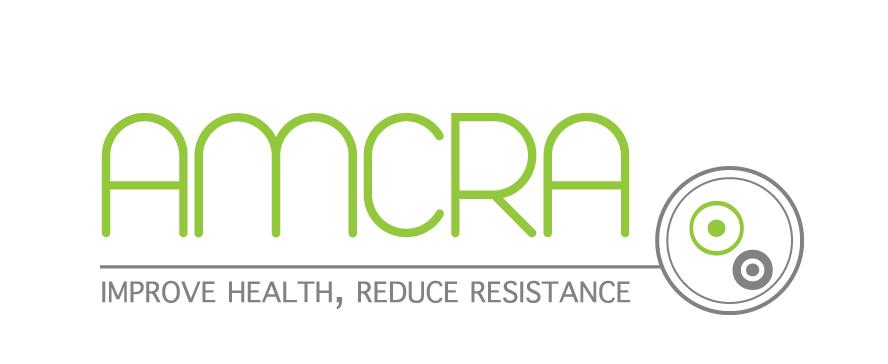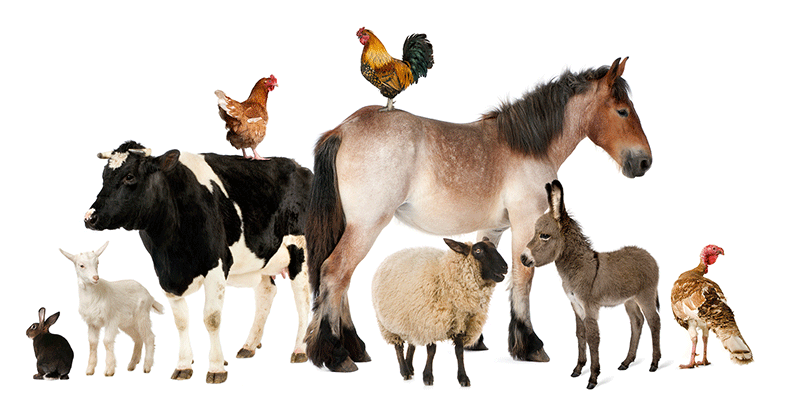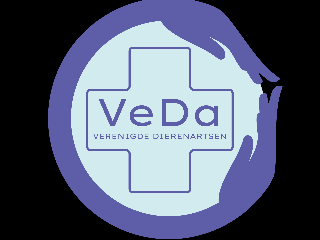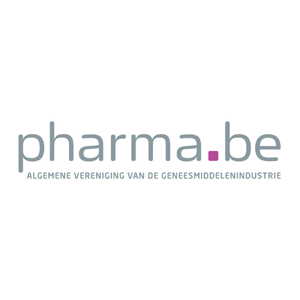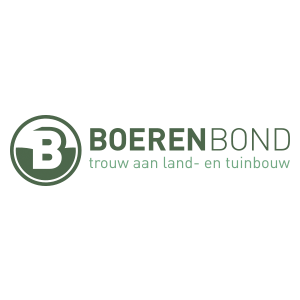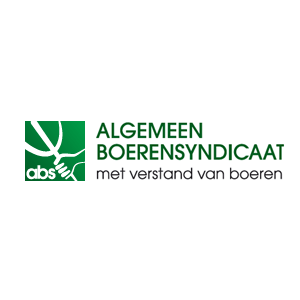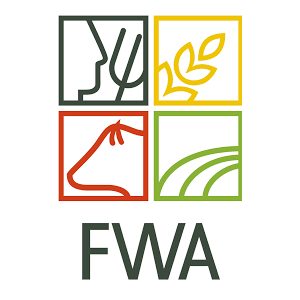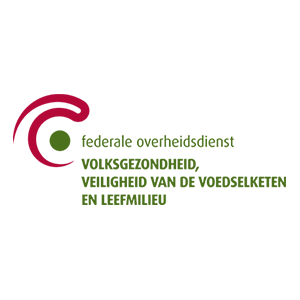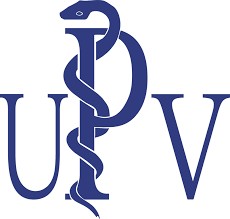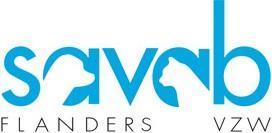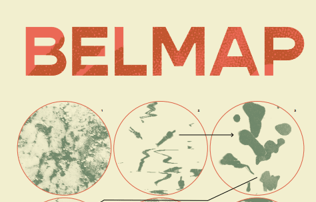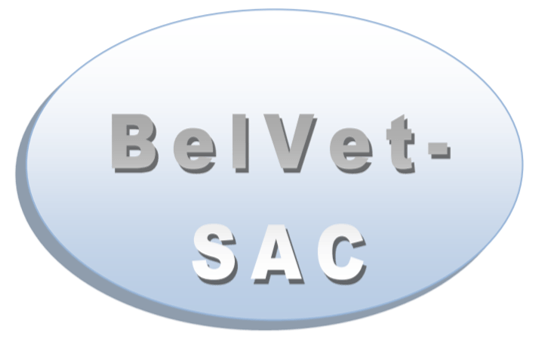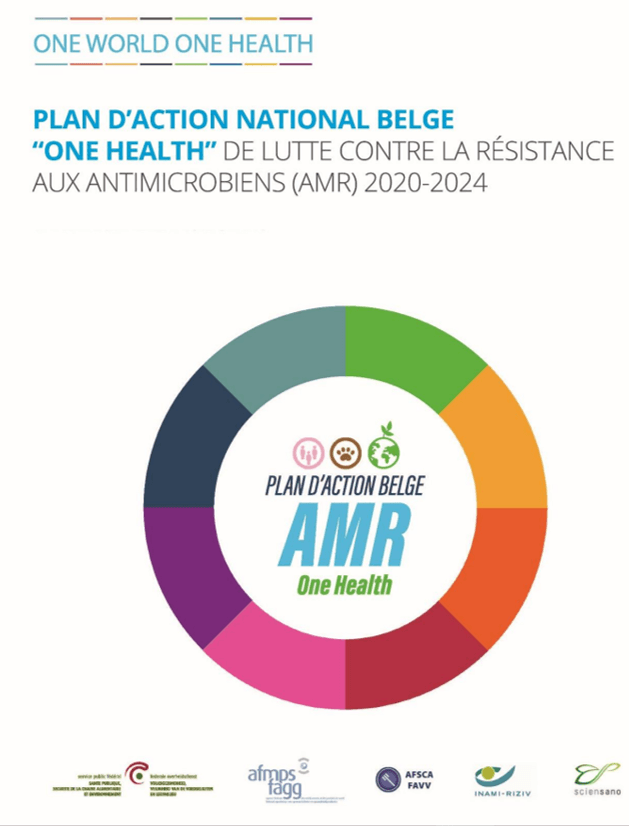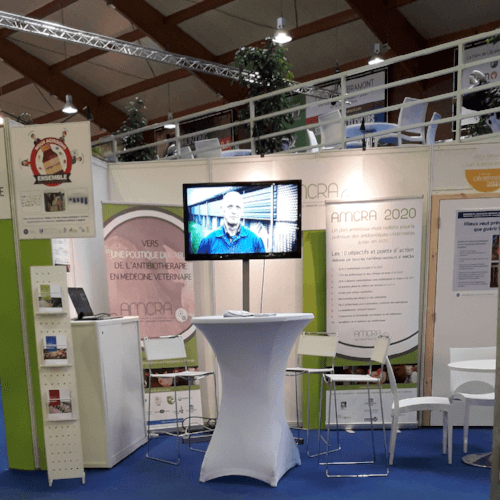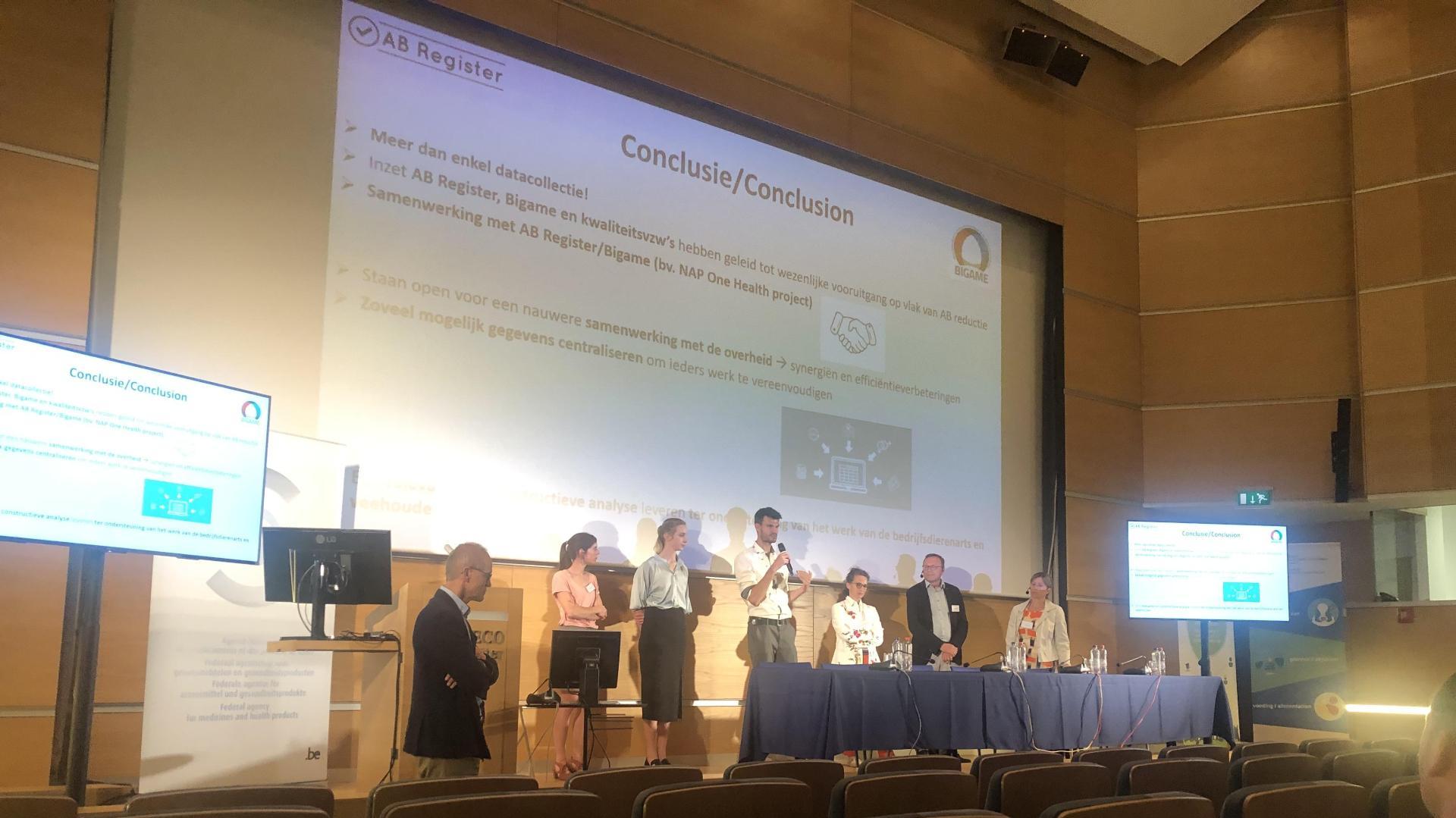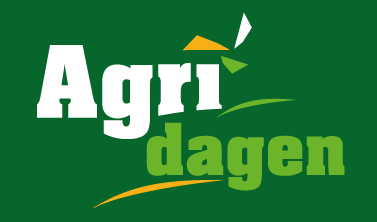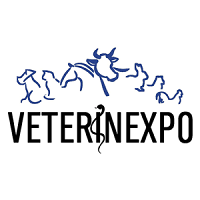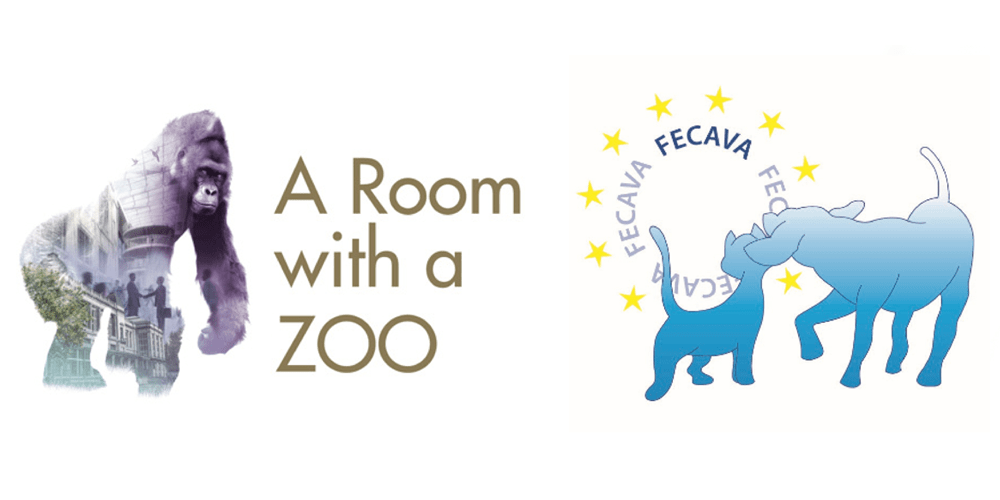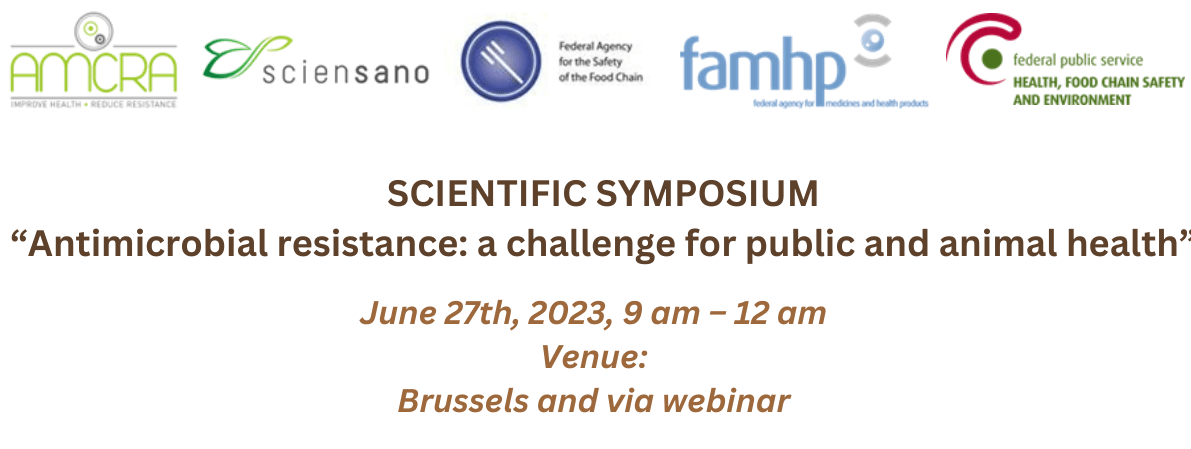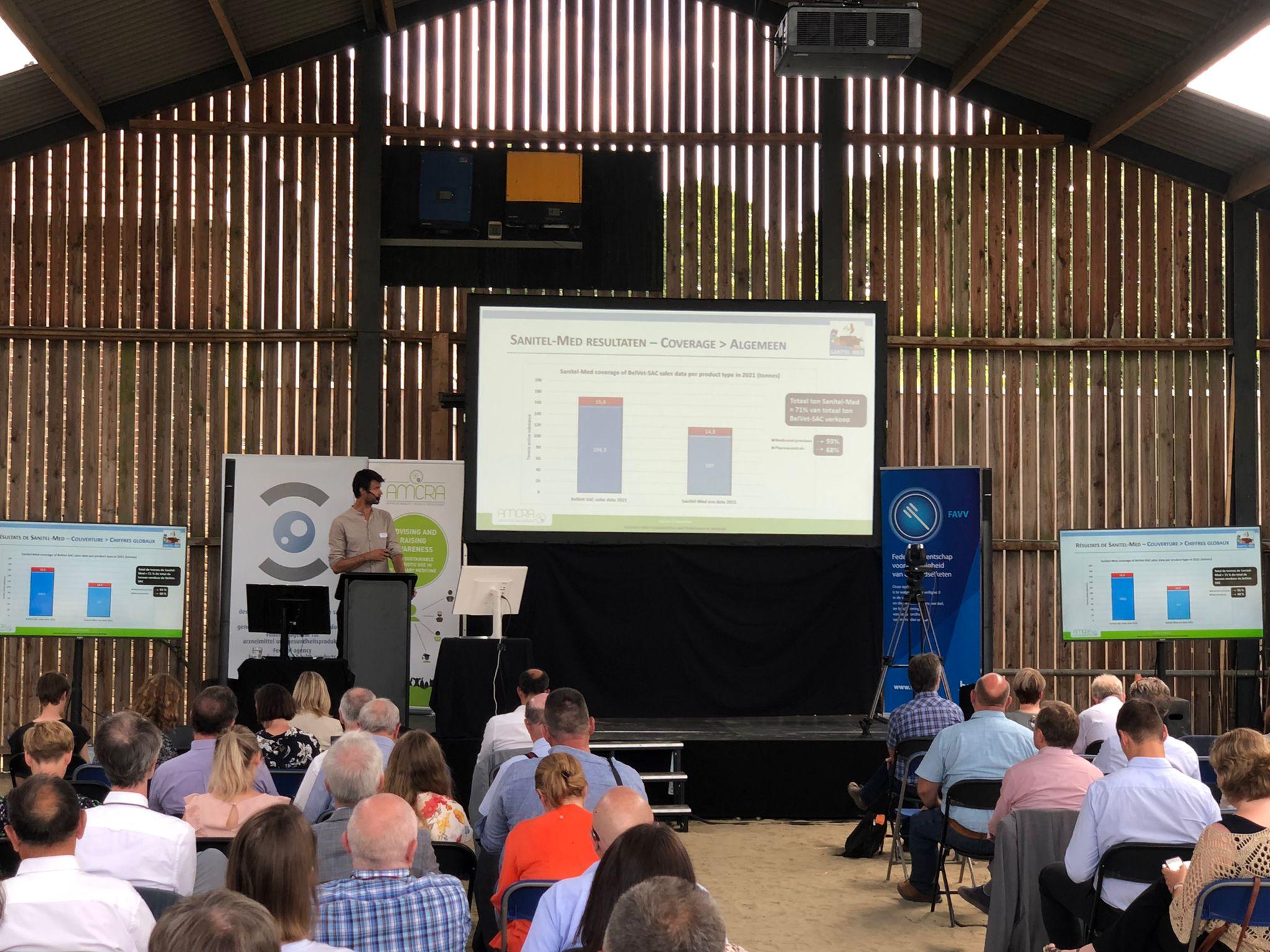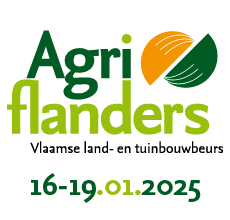Mission
Structure
AMCRA benefits from broad support from and recognition by all relevant parties and the Belgian Government. AMCRA has the legal form of 'vzw' (non-profit association under Belgian law).
Steering committee
The purpose of the AMCRA steering group is to define strategic objectives. These objectives are drawn up annually in consultation with the Executive Board. Other tasks of the steering group include evaluating the organisation's operations and achievements, and monitoring the neutrality of AMCRA. The steering group also scrutinises the budget and carries out an annual evaluation of the accounts.
The steering group is composed of representatives from the Federal Agency for the Safety of the Food Chain (FASFC), the Federal Agency for Medicines and Health Products (FAMHP), the Federal Public Service for Health, Safety of the Food Chain and the Environment, and Sciensano, as well as observers from the permanent staff and from the Executive Board of AMCRA.
Executive Board
The Executive Board of AMCRA, in conjunction with the steering group, sets the strategic objectives every year that AMCRA is required to attain. It supervises the achievement of the operational objectives by the permanent staff in order to achieve the aforementioned objectives, and also the day-to-day operations of the knowledge centre. Its other tasks include preparing the annual report and list of financial liabilities, and recruiting and appointing staff and any external experts when required. The Executive Board is also responsible for convening the advisory council and the technical working groups.
The Executive Board is composed of representatives from the faculties of veterinary medicine of Ghent University and University of Liège, the pharmaceutical industry pharma.be, the mixed fodder organisation Belgian Feed Association, the veterinarian associations VeDa, UPVand SAVAB-Flanders, and the agriculture associations Boerenbond, ABS and FWA.
Staff
The staff of AMCRA works in the 'recommendations and communications’ unit and in the ‘antibiotic use data analysis’ unit. Staff are managed on a day-to-day basis by the coordinator.
The 'recommendations and communications' unit implements the operational objectives in consultation with the Executive Board. Recommendations and guidelines are prepared in order to answer specific scientific or technical questions for the purpose of achieving the reduction targets. Technical working groups are set up and their composition varies depending on the topic in question (see the list of published recommendations on the "Recommendations and legislation" page). In addition to its role as adviser to the Government and industry sectors, AMCRA also plays a key role in communications and awareness-raising among all relevant stakeholders. An overview of awareness campaign material developed by AMCRA can be found on the "Raising awareness" page.
The data analysis unit performs analyses of the data relating to antibiotic use in animals in Belgium that are collected by public- and private-sector systems.

Fabiana Dal Pozzo
Cordinator

Bénédicte Callens
Scientific collaborator
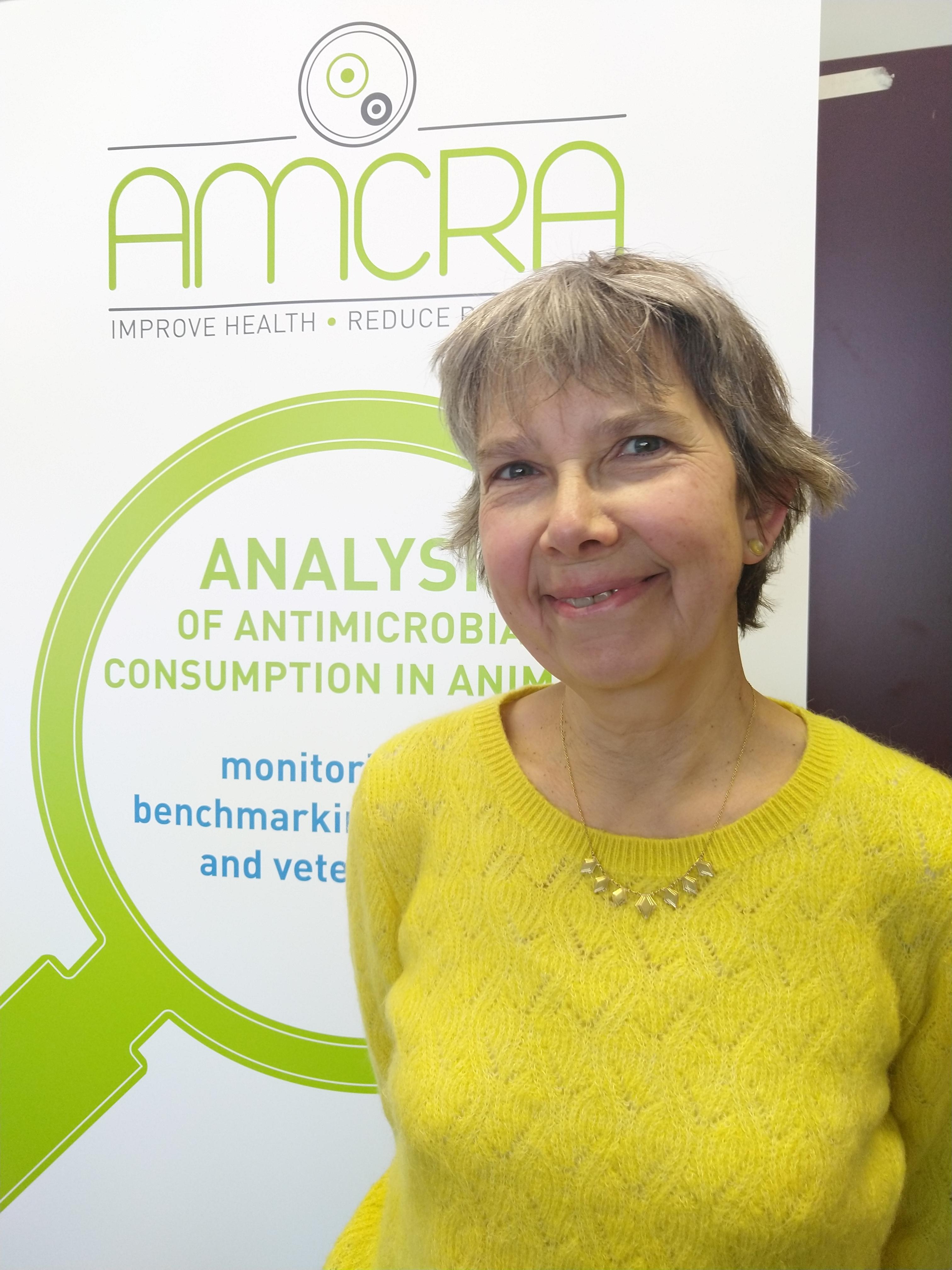
Isabelle Thirion
Translator and administrative assistant

Wannes Vanderhaeghen
Head
'Unit data-analysis'

Philippe Van Vreckem
Data-analist

Maries Lissens
data-analist
Technical working groups
A technical working group is established in order to answer specific scientific or technical questions in the context of achieving the strategic objectives. The composition of the working group therefore varies according to the subject.
The Advisory council, the Steering group, the Executive Board and all organisations involved can be called upon to propose participants for a specific working group. One of the members of the permanent staff is always present at the meeting of the technical working group.
Advisory council
AMCRA aims in its activities to communicate with all relevant parties via an annual advisory council, which is usually organised in June. Since the signing of the antibiotics covenant in 2016, the advisory council has also provided an opportunity for communication during which the initiatives taken by the member-sectors and the Government in the past year are shared.
The data on sales and use (BelVet-SAC) of antibiotics in animals in Belgium during the past year are also widely disseminated during the advisory council session. These figures are linked to the pre-defined targets for achieving a quantitative reduction in antibiotic use (see Vision 2020 and 2024). The trends in the available antibiotic resistance data from the national monitoring programmes are also published in order to follow developments in the prevention of resistance among indicator germs and zoonotic bacteria.
Annual reports
The annual reports are currently only produced in French and Dutch.
